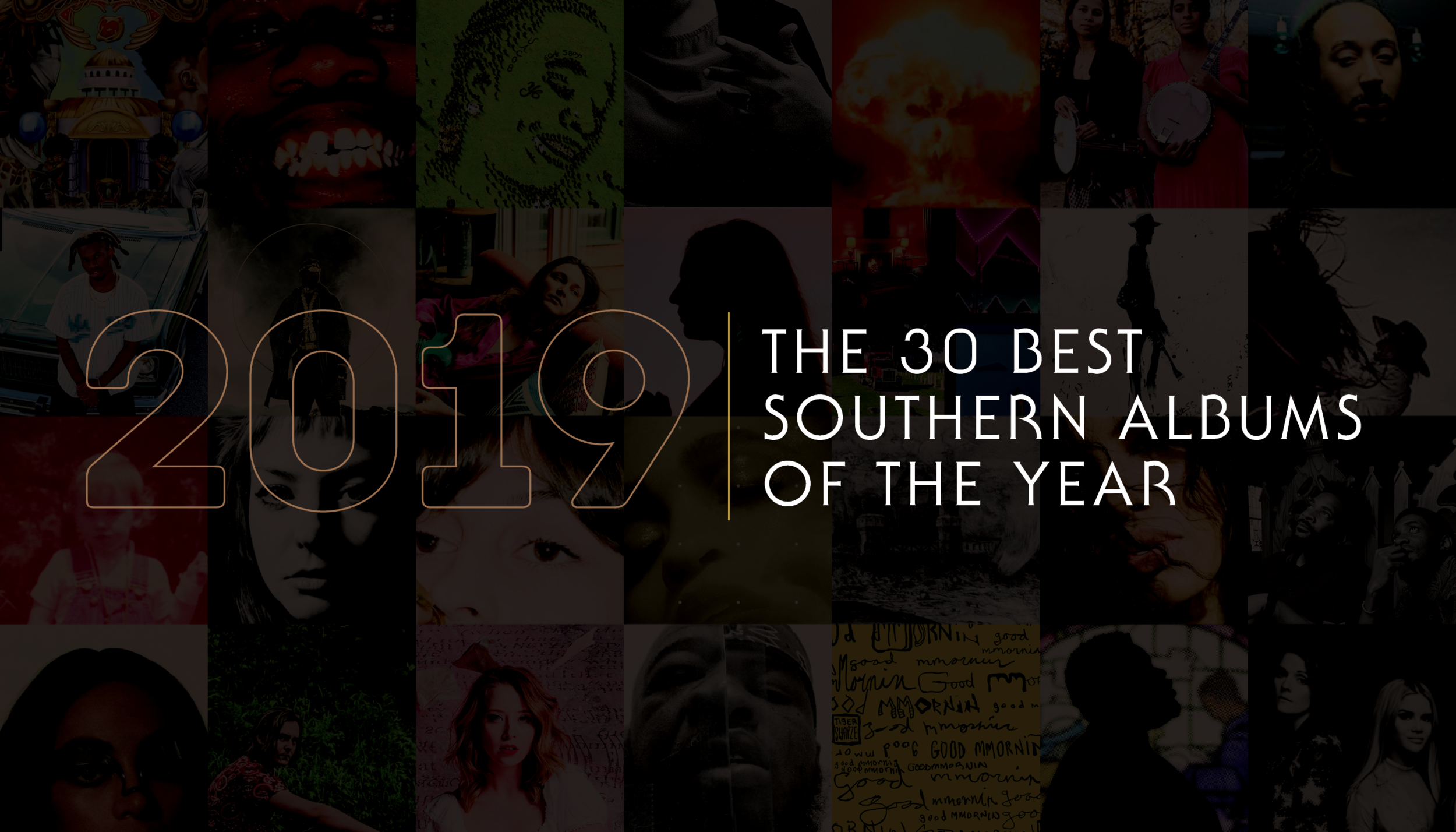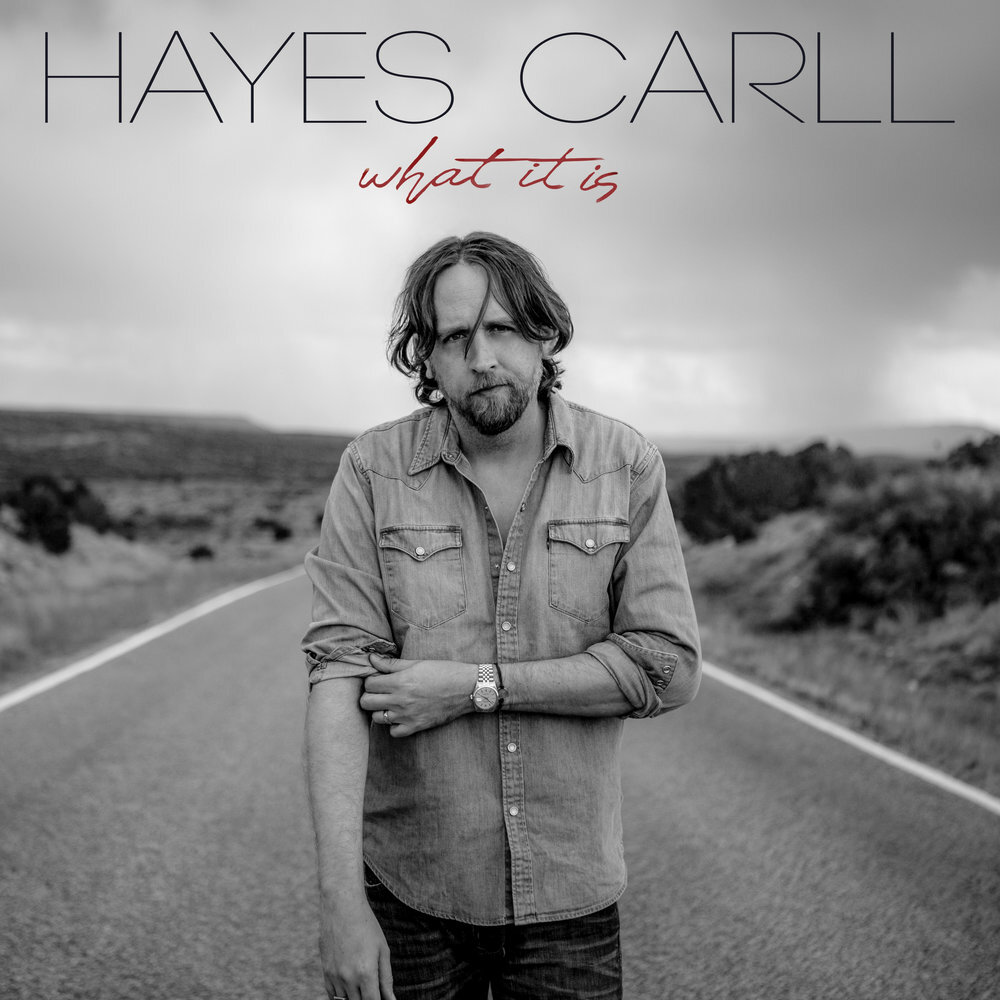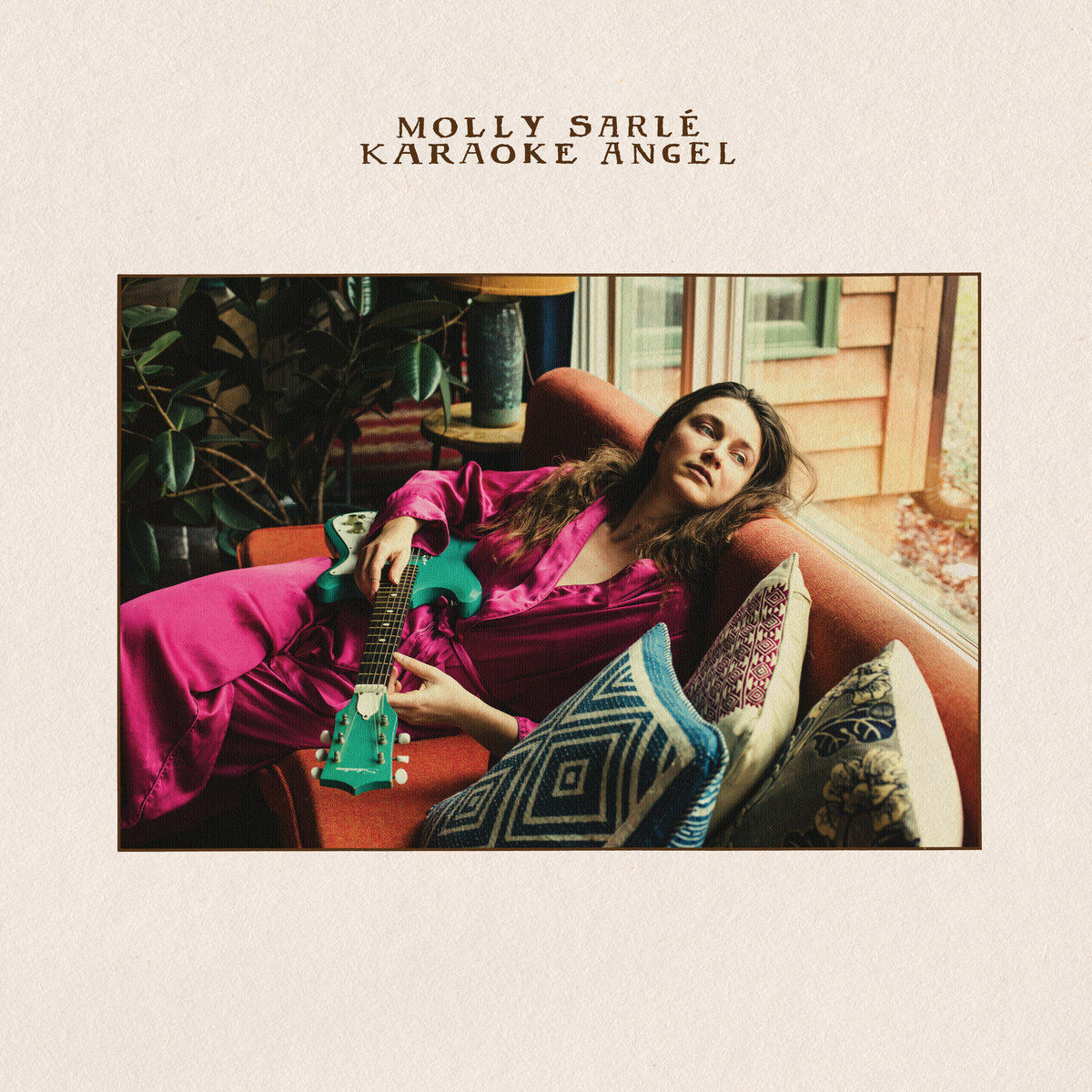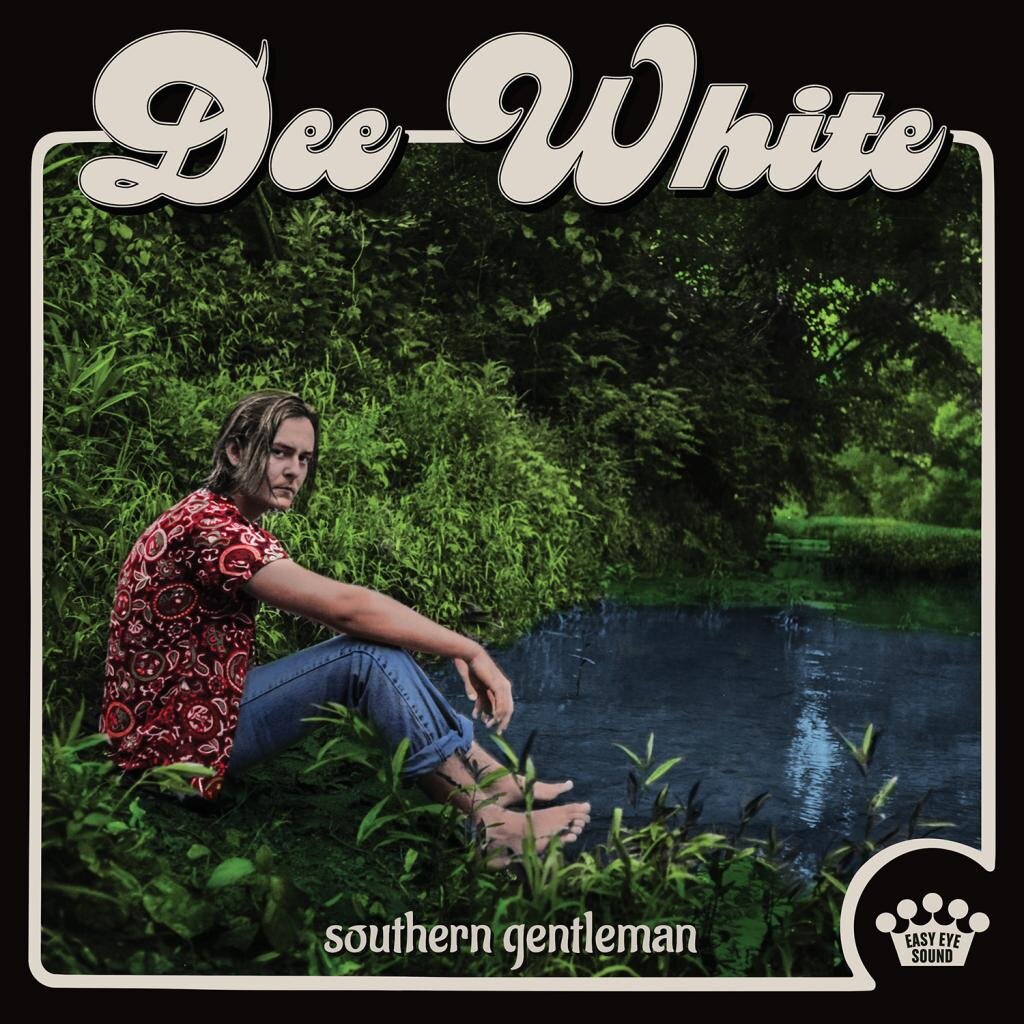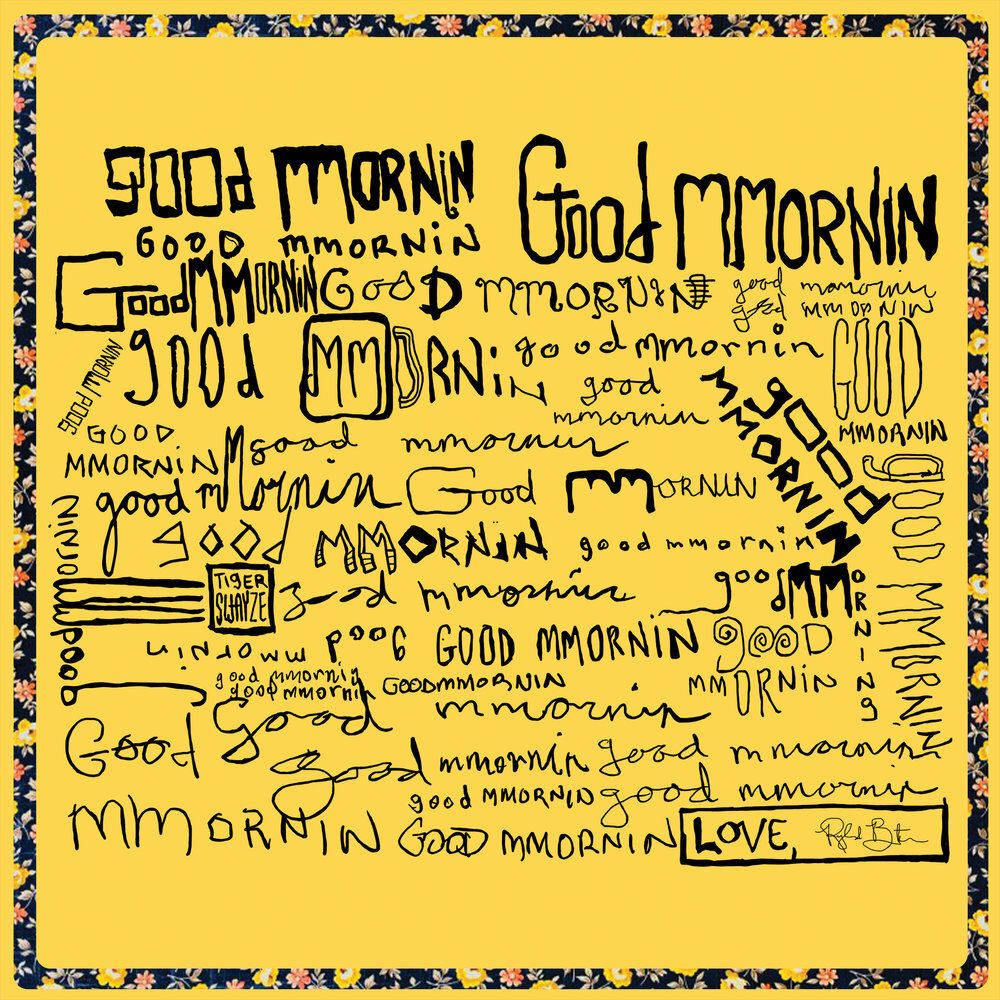What did the year in Southern music tell us?
Something big, we think, but difficult to put a finger on. This is, after all, the time of year when music writers start looking for a variation on the headline: “The Year of INSERT PHRASE HERE.” The year of women, of the Dirty South, of bro-country, of whatever.
To hear the records on this list, though, is to hear something bigger, a sound that seems to rise above the barriers of genre and generation. Across these 30 albums, you hear a great chorus of Southern voices, black and white and other, queer and straight and other.
All of us.
So we’ll just go with that: The Year of Us All. A year where we heard the voices of the whole South rising up in defiance of whatever forces hold them down. You hear echoes of our deepest musical traditions translated into the now. You’ll hear things you’ve never heard the likes of before.
And maybe you will hear what we did: The South singing and playing toward what we all could be, scrapping to get above where we’ve been.
One note: You’ll notice we have help in the writing of this list. So please welcome to the fray Charles Aaron. He’s eminently qualified, having spent more than two decades at SPIN magazine, ultimately becoming its editorial director, before moving home, to the South, three years ago. He’s been talking music with our editor for 35 years. For a little of their backstory, see the note at the bottom.
We welcome you to The Bitter Southerner’s seventh annual list of our region’s best records.
— The Bitter Southerner Crew
Roots: Houston, Texas. Home: Nashville, Tennessee.
Hayes Carll got married this year, and this album feels like the work of a contented man. When he emerged 14 years ago, showing the potential to equal the crafty wordplay and insight of writers like Townes Van Zandt and Guy Clark, he gained a passel of fans right away, many attracted by the sharp humor of his lyrics. And make no mistake: It takes native talent to reel off couplets like “Freight-train mamas, pistol shooters / My first girlfriend works at Hooters” two dozen at a time. But when Carll married Allison Moorer (see No. 21), he not only gained union, but also a collaborator. Moorer produced this album and co-wrote much of it, including the standout title track, which includes about the most adult declaration a writer could make, “What it is is right here in front of me, and I’m not letting go.” — Chuck Reece
Our favorite track: “What It Is”
Roots: Santa Cruz, California. Home: Durham, North Carolina.
More than once in “The Sound of My Voice, this year's documentary about Linda Ronstadt, when the singer mentions encountering some '70s El Lay beardo guy (likely an Eagles hanger-on) who questioned her validity as a musician because she didn't write her own songs. At such times, Ronstadt reached out to women musician friends like Emmylou Harris and, later, Dolly Parton. Molly Sarlé has her own powerful trio/support group of women, the gloriously harmonizing, mystical folkies Mountain Man. But Sarlé's musical bugaboo has been uncertainty as much as weird dude energy. The knotty folk-rock songs on “Karaoke Angel,” about people who struggle to decode their emotions and relationships, are like poignant, graceful riddles. A character in "Suddenly" loses her sense of self after giving head, then makes a cheese sandwich to regroup. In "Human," Sarlé sings about leaving a romance behind, then wonders, "Well, who hasn't talked to God like a man." Then there's the one inspired by her dad wanting to chat about suicide. It's intense, but song and father both come out of it well. — Charles Aaron
Our favorite track: “Almost Free”
Roots: Monkey’s Eyebrow, Kentucky. Home: Nashville.
Any Nashville songwriter would pray fervently for the public blessing of the icon John Prine. Kelsey Waldon’s pleas were answered this year when Prine signed her to his longstanding independent label, Oh Boy! Prine is picky about who becomes an Oh Boy! artist, and Waldon is his first new signing in 15 years. Five years ago, when her debut album “The Gold Mine” came out, I wrote, “Five years from now, we figure Waldon’s name ought to rank right up there with Kentucky’s greatest — women like Loretta Lynn and Patti Loveless.” So it’s five years later, and I suppose I should declare whether I think she can rub elbows in such company. “White Noise/White Lines” suggests she can. Waldon’s writing has sharpened tremendously. In the album’s standout, “Lived and Let Go,” Waldon’s voice and a solitary guitar deliver what might turn out to be a campfire standard to rival her mentor’s “Paradise.” She applies the direct, religion-soaked lyricism of her Appalachian home to the conflicts that divide America, then concludes with this chorus: “From the high mountain to the old western rivers, I can hear us all singin' our own lullaby / Sinners and posers and holy rollers, we all get along in the sweet by-and-by.” Let’s hope she’s right, and maybe even before we see the by-and-by. — C.R.
Our favorite track: “Lived and Let Go”
Roots: Slapout, Alabama. Home: Nashville, Tennessee.
The bio, press clips, and such just don't prepare you for Dee White. The 21-year-old Auburn dropout and competitive bass fisherman looks more like a chill weed dealer and chakra-stone enthusiast. He grew up in a tiny Alabama town known for producing Georgia football coach Kirby Smart and a Season 13 “American Idol” contestant named Jessica. He has a frickin' bulldog named Beignet. But somehow, this dude's unlikely music has earned him supporters among Nashville insiders and stars (Alison Krauss, Brothers Osborne, Ashley McBryde). His debut, "Southern Gentleman," sounds like little you've heard from any artist under, say, the age of 50. Unhurried, gentle, utterly assured, and unobtrusively framed by studio stewards Dan Auerbach and David Ferguson, White and his songs are mesmerizing on some elemental yet otherworldly frequency. I can only compare it to hearing Randy Travis or Jimmie Dale Gilmore croon for the first time. Or becoming immersed in one of David Lynch's dreamy dimensions. Time starts to slow way down and you're, like, please, whatever you do, never stop singing. — C.A.
Our Favorite Track: "Crazy Man"
Roots: Austin, Texas. Home: Kyle, Texas.
Gary Clark Jr. has been the greatest breathing blues/rock/soul, etc. guitarist on the planet for several hot minutes. But his first two major-label albums struggled to convert those who weren't already predisposed. The solution? Transform into a one-man version of Funkadelic — guitar wailing like it's being chainsawed in half, voice throwing sparks like a pissed-off arc welder, rhythm machines stomping mad like a rhino charging a safari wagon. "N---- run!" shouts some asshole and Clark barks back: "Fuck you, I'm America's son." Not every song achieves such ferocious transcendence, but Clark is so skilled that he can shift the album's mood simply by shifting genre: "Feed the Babies" channels Curtis Mayfield to create a dense, yearning funk collage; the tensile '70s punk of "Gotta Get Into Something" gives off a restless buzz; and "Pearl Cadillac" cries for redemption with a heart-ripping, Prince-like tour de force. Some contend that Clark's songwriting will never match his soloing prowess and the only place to experience him is live. "This Land" argues otherwise. — C.A.
Our Favorite Track: "This Land"
Roots & home: Memphis, Tennessee.
Your first reaction to this debut album from the Sensational Barnes Brothers might be, “This is new?” It does indeed sound like a long-lost gospel record, done in the style of Memphis soul in maybe 1969 or ’70. And, in certain ways, it is. First, while this is the debut of Chris and Courtney Barnes as a duo, the brothers’ family has loomed large in the world of Memphis church music for years. Second, this record is drawn entirely from songs issued first by Designer Records, a long-gone Memphis gospel label. The result is this immensely appealing album from Bible & Tire Recording Co., the brand new gospel imprint of the iconic Mississippi record label Fat Possum. “Nobody’s Fault” features Courtney and Chris’ extraordinary sibling harmonies paired with ferocious church organ from their brother Calvin II. They roll through long-unheard songs like “I’m Trying to Go Home,” swelling with horn arrangements a la Stax, to the funky strut of “Beautiful Mansion,” ending with “Try the Lord,” which pulls out all the stops, even adding pedal-steel guitar to the mix. No matter how your spirits move, this record is apt to move them. — C.R.
Our favorite track: “Beautiful Mansion”
Roots & home: Nashville.
There's nothing slight or stopgap about this seven-song EP; in fact, it's far weightier and affectingly crafted than "Wide Awake," Baxter's radiant (if occasionally melancholic) 2018 indie-pop record. As a fan of mercurial rapper Mac Miller, Baxter was shaken by the 26-year-old's death from an accidental overdose in September of last year. Not long after, he convened an impromptu group — keyboard/guitar ace Aaron Embry, drummer Eric Slick, Baxter's dad and pedal-steel virtuoso Bucky Baxter — to cover some of his favorite Miller songs. Improbably, they found a gently shuffling, uniquely insinuating, partially acoustic sound that felt so intuitive it was if a young Mose Allison had sprinkled emo-rap anxiety into his cheeky jazz-blues-folk compositions. The bluntly self-aware lyrics might hit even harder, delivered in Baxter's aching croon while staying true to Miller's uncanny melodic cadences and flows. The tender care taken with "2009," from the rapper's final album “Swimming,” buoys and boosts Miller's wounded attempt to accept life's inevitable disappointments. I wish he could've heard it. — C.A.
Our favorite track: “Small Worlds”
Roots: Spartanburg, South Carolina. Home: Nashville.
Few contemporary musicians conjure the otherworldly as well as this Adia Victoria, whose music style has been called “gothic blues.” She brought in Aaron Dessner of Austin’s the National to produce “Silences,” a fine choice, whose help she uses to bring her visions to vivid life. This is hellhound-on-my-trail music. I can’t imagine anyone describing it without using the word “swampy.” It’s like walking into a backwoods carnival. In “Pacolet Road,” she portrays a young girl who has packed her suitcase, determined to “do everything in the world my grandma wish she had,” because “the devil has a hold on me.” Southern Gothic territory like this can be difficult to navigate without the risk of cheesiness. But, amid the swirl of reverberating guitars and honking horns here, Victoria builds something of greater substance: a world that invites listeners to explore for a while. — C.R.
Our favorite track: “Devil Is a Lie”
Roots: Monroeville, Alabama. Home: Nashville.
When Allison Moorer was a young girl, her father killed her mother and then himself in the front yard of their home while Moorer and her older sister cowered inside. How does anyone come to terms with such a harsh beginning? For Moorer the answer was to make art, specifically this album and a memoir of the same title. “Blood,” the book, reads like a symphony assembled from police records, family artifacts, and memory. “Blood,” the album, renders the same material in 10 gripping songs that cover only 36 minutes. “Cold Cold Earth” tells the story — the whole story — in the strict form of an Appalachian murder ballad. It sounds like it could be a hundred years old. The final three songs differ starkly in tone, but proceed almost as a suite designed to end an opera. They could be subtitled “Dismissal of the Damage Done,” “A Vow to the One Who Remained,” and “A Prayer for Healing.” All who lose parents in childhood suffer. Those who lose them to violence and addiction suffer more. But few have the courage and talent to turn that pain into art like this. This album will live long, because it will mean the world to all the rest of them. — C.R.
Our favorite track: “Cold Cold Earth”
Roots: Lindale, Texas. Home: Nashville.
For almost 15 years, Miranda Lambert has set lovers on fire, filled ’em with lead, issued chilly threats, handed out brush-offs with glee, and anatomized the nuances of her Royal Country Divorce from Blake Shelton in ways the big talent-show galoot couldn't possibly understand. But with "Wildcard," Lambert simply has more of a rip-roarin', Patron-pouring blast than anybody else on this or any other year-end list. Of the album's rollicking, right-between-the-eyes approach, she said, "People want the humor, the sarcasm, something not too musically out there. I get that." While she may be giving the people what they want, it sounds like she's giving herself a long-overdue happy hour. The way Lambert saunters through the self-deprecating, high-tech redneck burlesque of "White Trash" and "Way Too Pretty for Prison" could rival Dolly Parton at her sassiest. She practically head-bangs on the garage-punk scorcher "Locomotive." The hooky country-rock cavalcade never flags for a sec, and the people are grateful. — C.A.
Our favorite track: “It All Comes Out in the Wash”
Roots & home: Houston.
Houston's Maxo Kream is hip hop's most fearless storyteller. In just the first track, he unloads an uncensored litany of anguishing realities to a friend in prison that leaves you gasping. Then Maxo has a flashback childhood convo with his real Nigerian pops (the “Brandon Banks” of the album title was dad's criminal alias). His father re-enacts how he rebuked a young Maxo for gangbangin', but, since dad spent a significant part of Maxo's life in prison, his son tells him to kick rocks. On and on, Maxo spills his guts, with little let-up, aside from some guest features of varying usefulness (Travis Scott, Megan Thee Stallion, A$AP Ferg). The family return toward the end: Maxo and older brother KCG Josh trade passionate verses ("Brothers"), while their father drops another spoken interlude, this one more cheeky than touching. Of course, that's after Maxo pledges his love and respect on "Dairy Ashford Bastard," a song documenting how the old man repeatedly cheated on the boys' mom and beat the shit out of all of them. It had to be said. — C.A.
Our favorite track: “Meet Again”
Roots: St. Louis, Missouri. Home: Asheville, North Carolina.
“All Mirrors” has split Angel Olsen fans, whose reactions have ranged from “huge leap forward” to carping that the North Carolina-based songwriter has sacrificed the rawness of her earlier work for a hit. To be sure, this album amps up the atmospherics around Olsen’s songs to levels of lushness that rival Roxy Music’s “Avalon.” Judging from music videos and recent television performances, she intends to create a 1920s silent-film-star vibe, where everything is black-and-white or a glittering silver and set to lush string arrangements. That’s a precarious ledge for writers to put themselves on, but I think Olsen pulls it off very well. The 14-piece orchestra, swooping synthesizers, and liberal use of vocal processors might now and then make you think enough already, but when this large machine meshes on all cylinders, you feel that Angel Olsen’s grand vision has been realized. — C.R.
Our favorite track: “Chance”
Roots & home: St. Petersburg, Florida.
As the title indicates, Rod Wave treats hip hop as evangelism, and his gospel is unadulterated pain, a scarring hurt of Biblical proportions. Only 20 years old, he urgently sing-raps like he's experienced enough heartsickness, betrayal, and death to fill a 200-volume manga series. He'll bellow, bark, huff, sputter, or coo, to ensure that you're not just in his feelings, but that you're feeling them as viscerally as that 808 bass vibrating your brain stem. At times, he'll take it down for a relatively simple confessional over soul-jazz acoustic guitar ("Close Enough to Hurt," "Chip on My Shoulder”) or distantly squalling electric guitar ("Brace Face"). It's easy to imagine him as a kid singing hymns over an electric piano at church; and off the job, he seems like a sweet-natured dude. Of course, if he threatens to knock somebody "out they sock," keep a wide berth. This is a man who started an album declaring, "Death's gotta be easy cuz life is hard." PTSD is real. — C.A.
Our favorite track: “Heart on Ice" (Remix) feat. Lil Durk”
Roots: Washington, D.C., and Fayetteville, North Carolina. Home: Atlanta.
What's enthralling about the debut of 25-year-old singer-songwriter Rose "Baby Rose" Wilson is its lived-in finesse. Some of the album's songs could be read as breakup boilerplate — on "All to Myself," she faces that crucial modern quandary: Should I drunk-dial my ex? But Wilson's strikingly deep, emotionally rich contralto finds a dramatic balance, as if standing proudly on a tension wire between independence and indecision. "To Myself" resonates with soul and R&B's foundation in blues struggle, gospel faith, and joyful, tough-minded survival. As a woman who ended the relationship that inspired these songs, choosing career over domesticity, Wilson makes every breath she draws or quaver she teases sound wearily heartfelt yet smartly considered. It's uncanny how she builds off the rugged ache of fellow North Carolina daughter Nina Simone while emerging with a sound that is distinctly her own. On "Show You," which Wilson self-produced, she masterfully plays the middle (where most of us reside), admitting weakness, then turning on a dime and taunting, "Tell me, baby, how ya like me now?" We've been there. — C.A.
Our favorite track: “Borderline”
Roots: Leesburg, Florida. Home: Los Angeles, California.
Theo Croker played jazz in public for the first time at the funeral of his grandfather, trumpet legend Doc Cheatham; and wrote one of his first serious pieces of music at age 18 after the death of his educator and civil rights activist father. That song, the exquisitely elegiac yet hopeful "Portrait of William," hovers over this restlessly inventive record, grounding it in the historical, familial, and mythical. For example, on "Alkebulan,” a kalimba shimmers against a lacework of African and electronically tweaked percussion, while Croker's trumpet woozily soars above. “Subconscious Flirtations and Titillations” distorts its trumpet and flute parts, as pianist Mike King lustily bangs and flutters amid rushing syncopation. If "Star People Nation" has a mission statement, it's "Have You Come to Stay," a stunning sampladelic flurry of '70s-era vibraphone, overdubbed horns, and dark folk musing ("Hello, lonely friend, have you come to stay?"). Like Los Angeles' Kamasi Washington, Flying Lotus, et al., and London's Shabaka Hutchings, Croker wants his spiritual jazz transcendence, but he just can't stop blowing up the spot. C.A.
Our favorite track: “Just Let It Ride”
Roots: Corpus Christi, Texas. Home: Los Angeles.
Ian Clifford Simpson, aka Kevin Abstract, grew up all over the South. Born in Houston, relocated with his mom to Florida at age 4, then settled on Brockhampton Street in Corpus Christi for several years until, one Christmas, his mother dropped him off at her sister’s in Georgia, where he finished high school. That’s a tough situation, particularly for a gay kid. Abstract first gained notice a few years ago in the San Marcos, Texas, rap collective BROCKHAMPTON, named after that street in Corpus. His rise was rapid, and now, at age 23, he has the major-label record deal and the L.A. mansion. But he’s pretty clear about the scars he carries. “My n----s back home ain't proud of me,” he raps in “Big Wheels.” “They think I'm a bitch, just queer-baitin'. Quit bein' a bitch and quit hatin'.” Somehow, “ARIZONA BABY” tells all the truth it needs to while Abstract and Taylor Swift producer Jack Antonoff pull off all sorts of musical tricks. They hop from slick L.A. pop on the beautiful “Georgia” to finger-picked electric guitar on “Crumbling.” “Baby Boy” will remind oldsters of the Stylistics. This album is a joy to listen to, filled with stark truths but optimism, delivered by a man whose “Southern blood,” as he raps here, “runs deep.”
Our favorite track: “Crumble”
Roots: Portland, Maine. Home: Nashville.
"You played the victim with all your friends / Then turned around and slept with them," sneers Kalie Shorr on "FU Forever," the teen kiss-off song that the "American Pie" soundtrack so desperately needed — and the best pop-country radio song of 2019 that never had a prayer of reaching pop-country radio. I could say that "FU Forever" and the other alternately bittersweet and scalding songs on Shorr's debut are what Taylor Swift might write if she'd allow herself, but that's not true. It took this particular spunky Mainer who ditched her rock band and went country after hearing Johnny Cash's cover of Nine Inch Nails' "Hurt" to pull it off. A vet of Nashville’s Song Suffragettes writer's round, Shorr is a 25-year-old pro with a voice that's only getting stronger. "I don't really like dating assholes / But I do it ’cause I have a weird relationship with my dad," she spits over a big ol' Nashvegas banjo jangle on "Gatsby" and, well, I’m out. Just listen to the damn album! — C.A.
Our favorite track: “Lullaby”
Roots: Coral City, Florida. Home: Los Angeles.
Denzel Curry's fourth studio album is a dizzying, prismatic zoom lens on his northern Dade County, Florida, home of Carol City, a.k.a., the "Zuu," and its vibrant rap scene (Rick Ross, Gunplay, Spaceghostpurrp's Raider Klan, which Curry left in 2013). This is also the area, or its contrived version dubbed "Miami Gardens," that 2 Live Crew's Uncle Luke decried as "a total embarrassment" in 2015 when it had a homicide rate higher than New York or Chicago. From 2008 to 2014, local police literally detained half the area's population, including Curry's brother, who died in 2014 after being tasered and pepper-sprayed by police. So, City Hall will not be co-opting "Zuu" anytime soon. From the title-track opener ("Designed in my prime to do time, b----, I'm Frankenstein / This what you made me, Carol City raised me") to the rampaging growl of closer "P.A.T." ("We carry hollow tips ’cause it reflects what's in my soul, damn"), the relentlessly introspective Curry sears the South Florida soil, paying tribute to his fellow artists who have journeyed across it. — C.A.
Our favorite track: “Speedboat”
Roots: Ravensdale, Washington (Carlile), Nashville (Hemby), Arlington, Texas (Morris), Lubbock, Texas (Shires). Homes: Maple Valley, Washington (Carlile), Nashville (Hemby, Morris, Shires).
Let’s consult the instruction manual for this thing. Step 1: Unite four highly talented female musicians and songwriters who proudly do not fit Nashville’s historical “girl singer” ideal. Step 2: Record an album of frank statements about the real lives of women today. Step 3: Frame it by stepping boldly into the shoes of the Highwaymen, the country supergroup formed in 1984 for Johnny Cash, Waylon Jennings, Willie Nelson, and Kris Kristofferson. On paper, that sounds like a risky mission with high odds of failure. It certainly doesn’t sound like the recipe for a No. 1 hit. But the week after its September debut, this project from Amanda Shires, Maren Morris, Natalie Hemby, and honorary Southerner Brandi Carlile hit the top of the Billboard Country chart and No. 10 on the all-inclusive Billboard 200. That’s probably because the Highwomen nailed their mission on all fronts. The first cut establishes their bona fides via Carlile’s and Shire’s perfect rewrite of “Highwayman,” the Jimmy Webb song that gave a name to the Highwaymen. The original gave each singer his own character: a robber, a sailor, a dam builder, and a starship flyer. All are dead, and we hear their spirits speak. Here, the characters are an immigrant mother from Honduras, a healer hung as a witch in Salem, a freedom rider in 1961, and a preacher, defrocked and killed because she is a woman. Plenty of highlights follow that mighty achievement. “Cocktail and a Song,” an account of a dying father, might be the best song Shires has ever written. Another Shires number, “If She Ever Leaves Me,” nails the all-inclusive nature of the whole project. The twist is that the end of the line is “it won’t be for a cowboy like you.” With great writing and grand vocal harmonies from all, the whole album displays women’s fierce love of children and families and partners, but always them: Y’all best understand our value, and that we ain’t all alike, and that when, as the song says, “my name can’t be Mama today,” you better step in. — C.R.
Our favorite track: “Highwomen”
Roots: Houston, Texas. Home: New Orleans, Louisiana.
Solange Knowles’ 2016 meditation on black American life, "A Seat at the Table," finally made her a star who could shine outside of sister Beyonce's hive. It raised expectations for her art and provided a potential platform. Then she split from her longtime boyfriend and now-ex husband. But "When I Get Home" doesn't really address these newfound pressures. Instead, it flexes a whole other lush, sonically diverse mood – loose, irreverent, spacey – to paint an impressionistic portrait of Solange's hometown of Houston. On "Almeda" (with The-Dream and Playboi Carti) and "Down With the Clique" (with Tyler, the Creator and experimental Brooklyn jazz/hip hop crew Standing on the Corner), she free-associates about the city's black legacy over trippy, time-lapse grooves that nod to local hero DJ Screw. Elsewhere, she ruminates on Houston's storied, candy-paint car culture, sliding into the luminous glow of "Way to the Show" or trilling and chanting over the blippy, rippling sparkle of "Binz" and "Beltway" (both with Panda Bear). Sometimes, the best therapy is to hazily, crazily reminisce, but keep it moving. — C.A.
Our favorite track: “Almeda”
Roots and home: Atlanta.
I first saw Faye Webster perform when she was, I believe, 14 or 15 years old, an uncommonly talented young woman in the opening-act role at a tiny house venue in Atlanta. She’s only 22 now, but “Atlanta Millionaires Club” puts Webster among the most original musicians around. “Here’s the thing about this generation,” NPR Music’s Ann Powers told me as we taped the podcast that will accompany this list. “They are genre-less. They are not feeling confined.” Which is why “Atlanta Millionaires Club” leaves me asking questions — Is this a country record? A hip hop record? — before finally concluding my answers don’t matter. She can drape a song in steel guitar and tell me how everything she sees “reminds me of what used to be mine” so well I start picturing Webb Pierce time-traveling just to cover the song. She can also share the mic with Father, one of the rappers associated with Atlanta’s Awful Records. On this third album, she does all that and more with a mastery beyond her years. — C.R.
Our favorite track: “What Used to Be Mine”
Roots: Seminole, Texas. Home: Nashville.
This country legend's stardom at age 13 meant she was raised by the Babylons, Nashville and Hollywood, but Ms. Tanya Tucker has never given a good cahoot. She can still read a rack of bumper stickers and make it sound like the Great American Songbook. But with Brandi Carlile as the driving force behind her first album in a decade (the Rick Rubin to Tucker’s Johnny Cash?), these 10 tracks are custom-made perfection — seven written by Carlile and her right-hand twins Phil and Tim Hanseroth. Tucker crisply rasps about leaving Texas in a jailbreak fever on the artfully drawn "Mustang Ridge.” She bestows the cinematic "Wheels of Laredo" with a bittersweet grandeur that Jimmy Webb and Glen Campbell would envy. And her hard-won ad-libs pull you in tight, like when she spits a terse "Yup!" in "Hard Luck." On the piano-ballad closer, which she co-wrote, the still-ornery 61-year-old distills the album's intent: "Bring my flowers now, while I'm livin' / I won't need your love when I'm gone." Give her the Grammy already. — C.A.
Our favorite track: “I Don’t Owe You Anything”
Roots and home: Atlanta.
Future and Young Thug are Atlanta trap rap's co-rulers for contrasting reasons: Future turned the codeine-dosed paranoia of black kids under siege into heartthrob pop; Thug turned Future's dank dreaming into absurdist creative play. Together, on "Sup Mate" from Thug's 19th full-length release and first to chart at No. 1, they play cartoon Lotharios murmuring in spotty English accents — “What’s up, mate... / No fucks, mate?” — during a best-of-both-styles goof-off. Throughout its 19 songs, "So Much Fun" is that rare project: a giddy, melodic, never-boring trap record that flatters virtually everyone involved, especially its star. Against a backdrop of punitive policing, economic violence, and domestic trauma, Thug nimbly yawps, yelps, and ad-libs a luxury-brand fantasia full of crafty guests (J. Cole, Gunna, Travis Scott, 21 Savage, Lil Uzi Vert) and beguiling tracks (Pi'erre Bourne, Wheezy, others). It may be dystopian escapism, but when your life is ceaselessly at risk, wouldn't you wanna pop a blue pill and wipe off your Cartier specs with a Gucci scarf? I thought so. — C.A.
Our favorite track: “Bad Bad Bad” feat. Lil Baby
Roots: Jackson, Kentucky. Home: Nashville.
Let’s get the obvious out of the way first. Yes, “SOUND & FURY” sounds a bit like mid-1980s ZZ Top. And the accompanying anime film was … out there. And finally, “SOUND & FURY” damned sure ain’t a country record. Folks who came on board with Sturgill Simpson six years ago for the wily, ornery songs of “High Top Mountain” may reasonably scratch their heads. But what I heard on “SOUND & FURY” was a mountain man who had decided to do whatever he damned well pleased. I think Simpson has just decided to behave like Bob Dylan, to follow the tangents of his life and turn them to music, with regard only for his own evolution on this earth. I will not be surprised if, when I am a very old man, he puts out a Christmas record. He is already a masterful lyricist and musician. He leads a live band that regularly raises rackets like this one. And his aspiration, as stated in the lyrics here, is only to “wake up every day and be the best clockmaker on Mars.” Who wouldn’t want to follow a career like that? — C.R.
Our favorite track: “Best Clockmaker on Mars”
Roots and home: New Orleans.
Since New Orleans pioneers like Louis Armstrong, Kid Ory, and Jelly Roll Morton established its first sound, jazz musicians have been taught to treat the repertoire of previous generations as a textbook. Which means jazz has always moved in different ways than pop music. It is, almost by nature, less concerned with what’s happening right now. But New Orleans native Christian Scott aTunde Adjuah’s music moves in its own ways. He is a nephew of legendary saxophonist Donald Harris and certainly knows tribute must be paid to elders like his uncle. (In fact, this record also marked the founding of his own Mardi Gras tribe, Chief Adjuah and the Brave.) But Adjuah’s music struggles, screams, and ultimately succeeds in expressing the feelings — from righteous anger to quiet faith — of his community. Enter into Adjuah’s Afrofuturistic world and listen to this album’s quiet moments and the shrillest trumpet shouts. If it ever feels like his trumpet is screaming too loudly at you, that’s because it has a right to. — C.R.
Our favorite track: “Prophesy”
Roots and home: Atlanta.
Atlanta’s EarthGang has made music for almost a decade, and “Mirrorland,” their debut album on a major label, has critics dropping OutKast comparisons willy-nilly. I heard this record a bit differently. To my ears, the work of duo Olu and WowGr8 (best rap name in a generation) does not sound like Outkast. It just evokes the same sense of excitement. It reminds me of what it felt like to discover the world of Andre 3000 and Big Boy a generation ago. If anything about Outkast is a model for Earthgang, it’s method. Outkast used the same source material as Goodie Mob and the others who built Atlanta hip hop in the 1990s, but reconfigured them into a spectacularly attractive and brand new sound. Olu and WowGr8 have pulled off a similar trick for their generation with “Mirrorland.” Will it resonate for as long as Outkast’s “ATLliens” has? Ask me in 25 years, but know this: The roots of Olu and WowGr8 run as deep and true in the creative culture of their city as Dre’s and Big Boy’s. Earthgang began their collaboration at Benjamin E. Mays High School in Southwest Atlanta, a public school named for the Baptist minister who taught the Rev. Dr. Martin Luther King Jr. and other leaders of the Civil Rights Movement. Both Olu and WowGr8 studied at Virginia’s historically black Hampton University. “Atlanta is the Land of Oz,” Olu told Atlanta writer Jewel Wicker in Pitchfork this summer. “It’s black people just being unafraid and unapologetically creative. Just running around being themselves.” If Atlanta is the Land of Oz, “Mirrorland” is its soundtrack. — C.R.
Our favorite track: “Top Down”
Roots: Greensboro, North Carolina (Giddens), Chattanooga, Tennessee (Kiah), New York, New York (McCalla), Montreal, Quebec (Russell). Homes: Greensboro and Nashville (Giddens), Johnson City, Tennessee (Kiah), New Orleans (McCalla), and Nashville (Russell).
The most punk-rock record of the year, to my ears, was made by four black women with accordions and banjos. If you were tempted to write this album off as a Rhiannon Giddens “side project,” please reconsider. This record is four gifted and opinionated black women with a shared concern: “reversing the erasure of black women from American historical narratives,” to borrow from Jewly Hight’s description for NPR Music. That idea has been at the heart of Giddens’ work from the Carolina Chocolate Drops forward, but the concern is much bigger than her art alone. It also infuses the work of Amythyst Kiah, Leyla McCalla, Allison Russell — the other Native Daughters. As a band, they deliver a deeply informed and desperately urgent manifesto of sorts. “Black Myself,” the album’s opener, led by Kiah, is as powerful a declaration of uprising as the Clash’s “London Calling” was in 1980. Our Native Daughters move slyly and quietly at places in this album, but taken as a whole, their “Songs” are a Gatling gun loaded with truth and history. They aim to change minds and enlighten. Let those with ears… — C.R.
Our favorite track: “Black Myself”
Roots: Williamsburg, Virginia. Home: Nashville and Brooklyn, New York.
Admittedly, at times, Purple Mountains, aka the late singer-songwriter David Berman, does sound like a haunted, unwell man testing out deathly punch lines with a country-rock band-for-hire. But give him time, ease into the song, maybe listen on headphones in the food court while you're wolfing down some Mandarin Express. Berman's lyrics are filled with quotidian scenes like that, bent cock-eyed by philosophy and theology, corporate and sports lingo twisted into a language of romantic despair. Recorded in 2018 after Berman had ended his longtime band Silver Jews and his 20-year relationship with wife-lifeline-bandmate Cassie, the resulting album suggested the darker corners of Leonard Cohen or Townes Van Zandt, yet clung to a sweet, jaunty spirit. It contained his most heartening ("I Loved Being My Mother's Son"), devastating ("I'm the Only One for Me"), affable ("Storyline Fever"), and just plain gorgeous work ("All My Happiness Is Gone"). Sadly, on August 7, 2019, Berman died by suicide in a Brooklyn apartment. Pay your respects. — C.A.
Our favorite track: “Margaritas at the Mall”
Roots: Athens, Alabama. Home: Taos, New Mexico.
Subtitle it “Go Get a Late Pass.” From the get-go, Brittany Howard’s solo debut puts Alabama Shakes’ Americana template in the rearview, demanding your undivided attention with an audacious, snap-brim strut and sensual sway. With Howard's clipped guitar riff and fierce decree to move the fuck on, "History Repeats" rocks like a stormier version of New Orleans’ Meters circa ’70s-funk blueprint Look-Ka Py Py. Over the boom-crack of Nate Smith's drums on "He Loves Me," she coos her sly truth in response to edited bits of an electrifying call-to-worship by the Rev. Terry K. Anderson of Houston’s Lilly Grove Missionary Baptist Church. The upshot: Howard believes God will take care of her, even if she's a messy Sunday no-show. It's one of this album’s many “damn-she-did-that?” jolts. "Georgia" eases into its girlish queer desire like a sunrise unfolding; "13th Century Metal" poetry slams to Robert Glasper's righteous keyboard squawk. And in the midst of the spine-tingling, gospel-soul drift of "Stay High," this fiercely talented southern voice, propelled by childhood trauma and adult bullshit, inscribes her moment: "I'm doing wonderful, just fine, thank you." — C.A.
Our favorite track: “Goat Head”
Roots: Snow Hill, North Carolina. Home: Raleigh.
Rapsody’s third album, “Eve,” is the sort of record that inspires grandiose declarations, so here’s mine: Marlanna Evans, of the little town of Snow Hill, North Carolina, did more this year than just establish herself as one of hip hop’s most compelling lyricists. She emerged as A Woman We Must Pay Attention To, truly one of the South’s most important artists. “Eve” is a collection of 16 anthems by, for, and about black women, with each song an extraordinary depiction of an inspirational figure and the host of forces she fought (or is still fighting). In "Myrlie," Rapsody puts herself in the shoes of Myrlie Evers, behind the black veil with Coretta Scott King, and in solidarity with the thousands of black women who have mourned the loss of black men to violence — all in the same verse! To our readers who maybe still "don’t really get” hip hop, try this memory on for size: Remember those nights when you’d sit in your room, open that big gatefold cover, read every last lyric as the album played, and have a whole new world open up to you? “Eve” is one of those; treat it accordingly, please. Rapsody deftly pushes against materialism, sexism, racism, and might well be the best Southern rapper alive in 2019. Which, given the global reach and market power of Southern hip hop, means people all over the world will hear, and more importantly listen, to her voice. — C.R.
Our favorite track: “Cleo”
EDITOR’S NOTE: Thirty-five years ago, Charles Aaron and I were roommates in a fifth-floor walkup studio apartment on the Upper West Side of Manhattan, and we shared what seemed at the time like a big aspiration: to become nationally known music critics. At college in Athens, Georgia, during the early 1980s, we were both dazed and made starry-eyed by the rise of bands like R.E.M. and Pylon. For The Red & Black, the independent college newspaper, we had chronicled that music as it ascended to national prominence. And we arrived in New York City determined to bring our changed Southern lives to the world as we waxed rhapsodic about what we’d witnessed.
Only Charles succeeded with that aspiration, spending more than two decades with SPIN magazine, writing pieces still considered landmarks of music journalism. For reference, I suggest you visit a roundup called “Charles Aaron’s Greatest Hits,” a roundup of the SPIN staff’s favorite pieces from his career there. If you want Charles’ own take on our years together in New York, I suggest “Scenes From a Marriage.”
It’s been a nice reunion for us.

